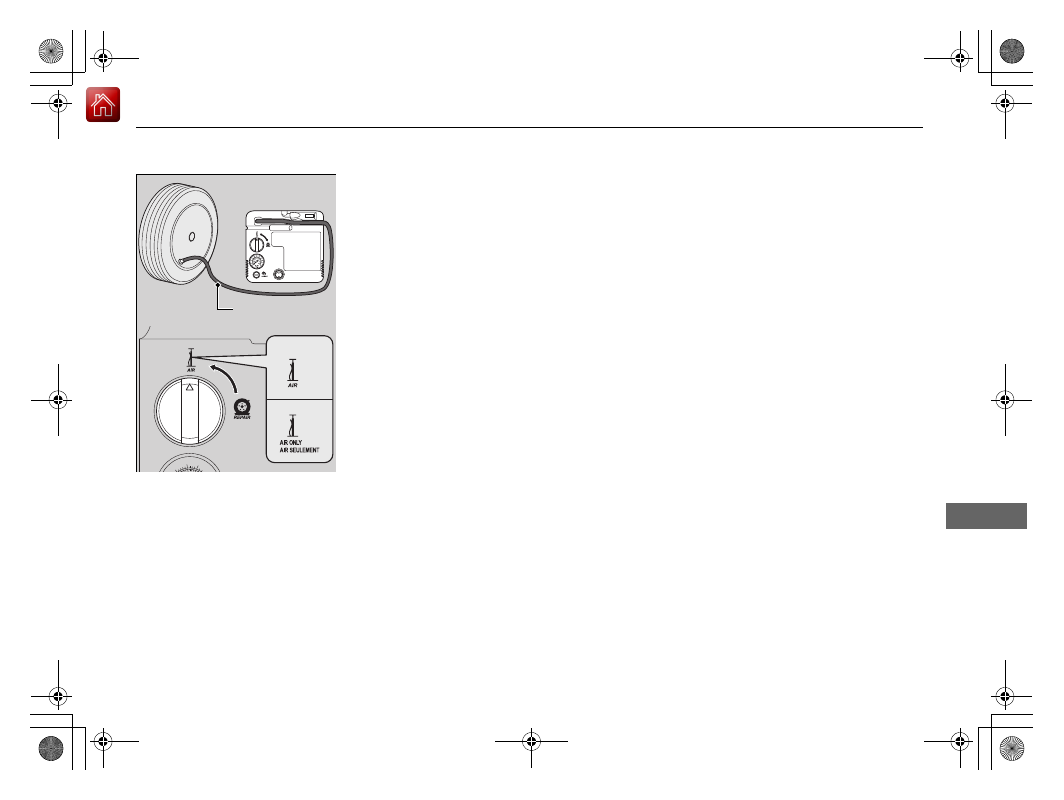Honda Clarity Plug-in Hybrid (2018 year). Instruction - part 34

529
uu
If a Tire Goes Flat
u
Temporarily Repairing a Flat Tire
Continued
Han
d
lin
g the U
n
expected
4. Recheck the air pressure using the sealant/
air hose on the compressor.
5. Turn the selector knob to AIR
*1
, AIR
ONLY
*2
, AIR SEULEMENT
*2
.
u
Do not turn the air compressor on to
check the pressure.
2 Inflating an Under-inflated Tire P. 531
6. If the air pressure is
• Less than 25 psi (175 kPa):
Do not add air or continue driving. The
leak is too severe. Call for help and have
your vehicle towed.
• 36 psi (250 kPa) or more:
Continue driving for another 10 minutes
or until you reach the nearest service
station, whichever is sooner. Do not
exceed 50 mph (80 km/h). If you have not
reached a service station after 10 minutes,
stop in a safe place and check the tire
pressure.
u
If the air pressure does not go down
after the 10 minute driving, you do not
need to check the pressure any more.
*1: U.S. models
*2: Canadian models
U.S.
Canada
Sealant/Air Hose